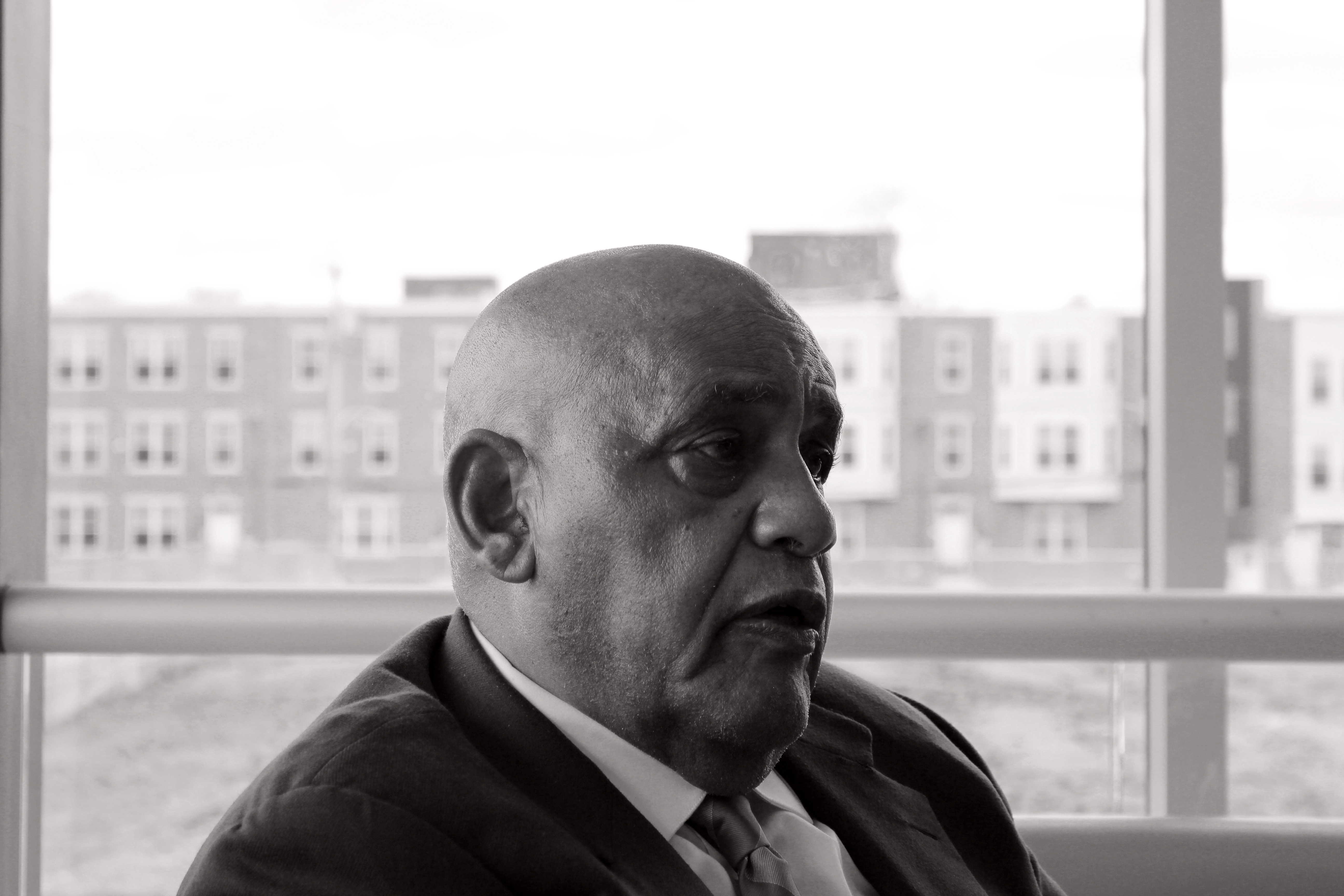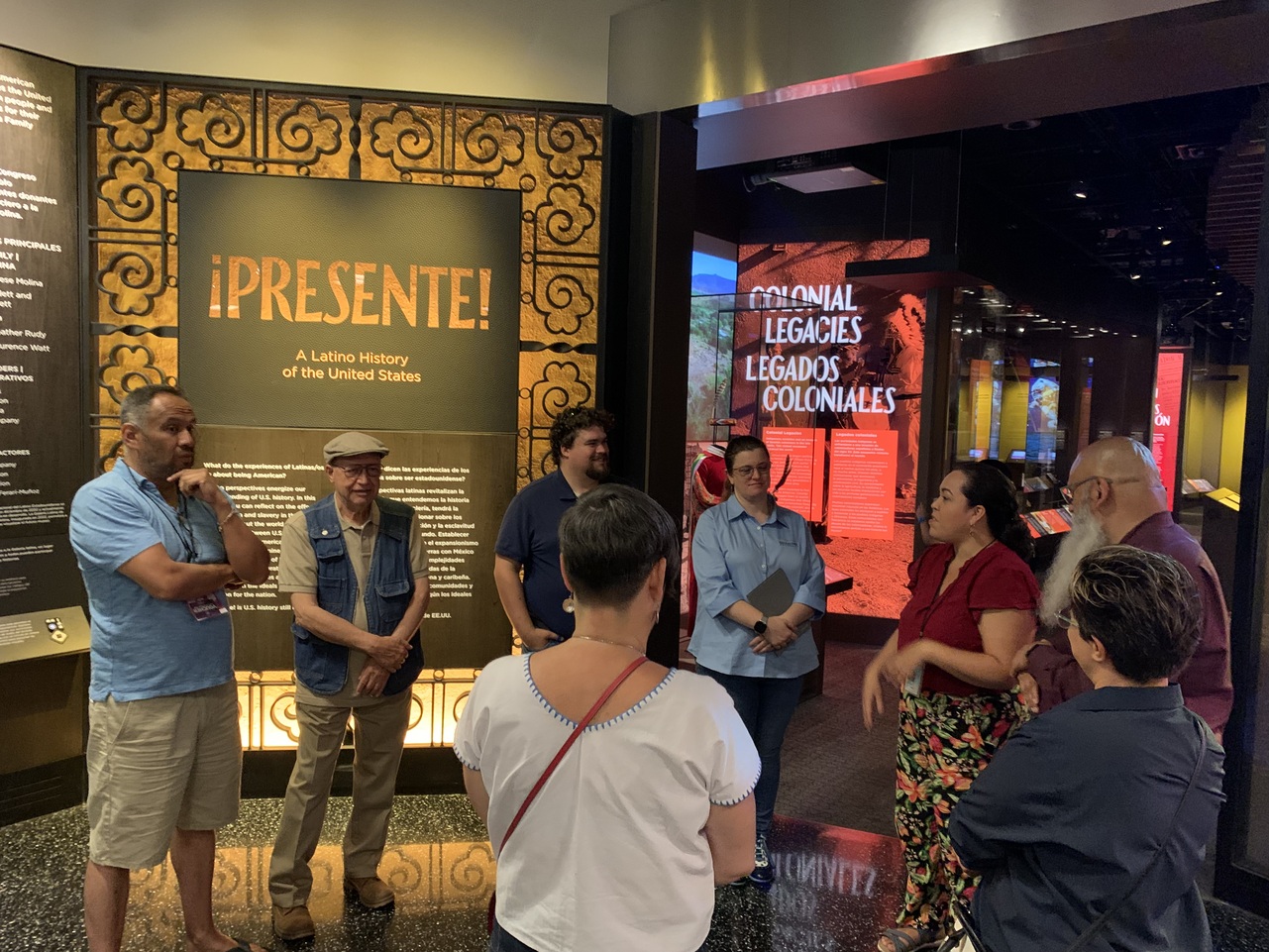
How big is Milton Street's fan club?
In his closing statement at a mayoral forum Monday night, T. Milton Street told the audience (and his opponents) that he has spent his career fighting for the poor, and he plans to mobilize those voters come the Democratic primary on May 19.
Rewind.
Before it even began, Street’s candidacy was challenged on numerous grounds. There was question about whether or not he was registered as a Democrat. He nearly missed the deadline to file his mandatory 1,000 petition signatures. And even when supplied them, there were probes into his marital status, as well as whether or not he legally resides in Philadelphia.
Street beat the cases. His name stays on the ballot.
Nonetheless, his campaign has lagged light years behind his opponents. Only last week he launched a campaign Twitter account. While he has been a steady presence at mayoral forums, he still doesn’t have a functional website, nor any written material about his policy proposals. We have only his words. Three words in particular — “Stop the violence” — are his main bedrock.
Few people in Philadelphia politics have taken Milton Street’s campaign very seriously. Come May 19, though, a vote is a vote. And there’s some evidence that Street has a bigger-than-suggested fan club.
In a recent op-ed piece, journalist Christopher Norris described the efforts to “trivialize” Street’s bid for the mayor’s office.
“A big part of why Mr. Street has been the victim of broad-base triviality and criminality is because he represents and speaks unapologetically for a certain class of people, which mainstream society, based on their actions, words and investments could certainly live without — or at the very least, could live without seeing,” Norris writes.
Many have written off Street’s campaign based on his personality, his jail time served for tax evasion, and his questionable use of power during his brother John Street’s tenure as mayor. But Norris points out what much of the Anglo media hasn’t processed: regardless of his rap sheet, Street connects with a large swath of Philadelphia.
“I have many influential friends and associates in Philadelphia, and a good number of them have told me they’re voting for Mr. Milton Street,” Norris continues. “A part of the reasoning behind their choice is that Mr. Street speaks their language, not the rehearsed rhetoric spoken by so many other polished politicos in Philadelphia.”
After all, conventional wisdom says that no one would pay a lawyer to have Street docked from the race unless he were a political hazard. Pundits have said that his remaining on the ballot is most likely to detract from Sen. Anthony Williams, given the city’s history of racialized voting. Doug Oliver, the third African American candidate, factors into this racial math logic as well.
But common language or not, do Street-wise Philadelphians vote?
There are somewhere around 1,036,943 registered voters in this city, 806,784 of which are democrats. The Democratic primary in 2007, which most resembles our current race in terms of the number of viable candidates, brought just 291,492 Dems to the booth. The 2011 primary, when Mayor Nutter ran for reelection, drew roughly half of that turnout.
But the 2011 primary election has been key talking point for Milton Street, because he swung 35,316 votes. While hardly a close race, Street has urged people to consider the context in which Street garnered 24.1 percent against incumbent Nutter’s 75.9 percent.
“Look at the facts in 2011. I came out of prison, had $1.69, a senior citizen transpass, and a dumb phone. I got 36,000 votes,” Street said at a press conference in March.
Now, Street says, he’s got a smartphone.
“There are six people on the ballot this time,” he continued. “Let’s assume that 36,000 votes are my votes. How many do I have to add to that to be very competitive?”
“Competitive” in the current six-way race has been estimated somewhere around 70,000 votes. Is Street making a colossal assumption to think he has already has half of that in the bag? How many of those votes were “protest votes” against Nutter?
Street says he’s not sure if he’s reached enough people to fill the gap to 70,000. But when asked about the unpredictable margin of error on that 36,000, Street said confidently that they are his votes.
The only polls conducted so far have shown Milton Street, Nelson Diaz, and Doug Oliver scoring in the low single digits. In one poll, Street had just four percent. But these polls were paid for by groups backing the three first-tier candidates — Lynne Abraham, Jim Kenney, Anthony Williams — with sample sizes between 500 and 600, Street argues.
“If we poll 500 people most likely to vote, the supervoters, they aren’t my voters. My voters are the people most likely not to vote,” he told AL DÍA last week.
“My mission is to get the people most likely not to vote to vote,” he added. “And when I get them to vote, then all your pollsters and your pundits are going to be side-swiped. They won’t know what happened.”
Not everyone has dismissed Milton’s base, either. Least of all his opponents.
“The common narrative is that people voted for Senator Street as a protest vote against Mayor Nutter when he drew 36,000 votes in 2011,” said Mustafa Rashed, campaign spokesman for Doug Oliver. “It’s easy to protest from home, anyone can do that. But Philadelphians woke up that day, left their houses and made a measurable action. That's not to be ignored.”
Former mayor Wilson Goode Sr. says there is no doubt that Sen. Williams is the leading candidate among African American voters. Even with the endorsement of Jim Kenney by Black pol leaders in the Northwest, Goode’s analysis is that the support is not so divided.
“I could be surprised this time around. I’m prepared to be surprised, but this is my assessment based upon my experience of almost 50 years.”
Where Street could swing some of that demographic, Goode doesn’t say. But his experience is that most voters will vote along socially-charged lines.
“There are geographical alliances, there are class alliances, and there are racial alliances,” Goode said. “At the end of the day, people will vote based upon that. And then there are people who look across all three of those areas and vote for who they think will make the best person in office.”
An anonymous donor paid for Street to run some radio ads on 900 WURD, but he doesn’t have the money to go on TV. Up until the primary, Street says he will be on the ground-level every day, hitting public transit as other candidates have done, and speaking to community groups in specific neighborhoods.
It’s unclear what will happen on May 19. But what’s certain is that Street doesn’t cower in the face of long odds and extreme opposition.










DEJE UN COMENTARIO:
¡Únete a la discusión! Deja un comentario.